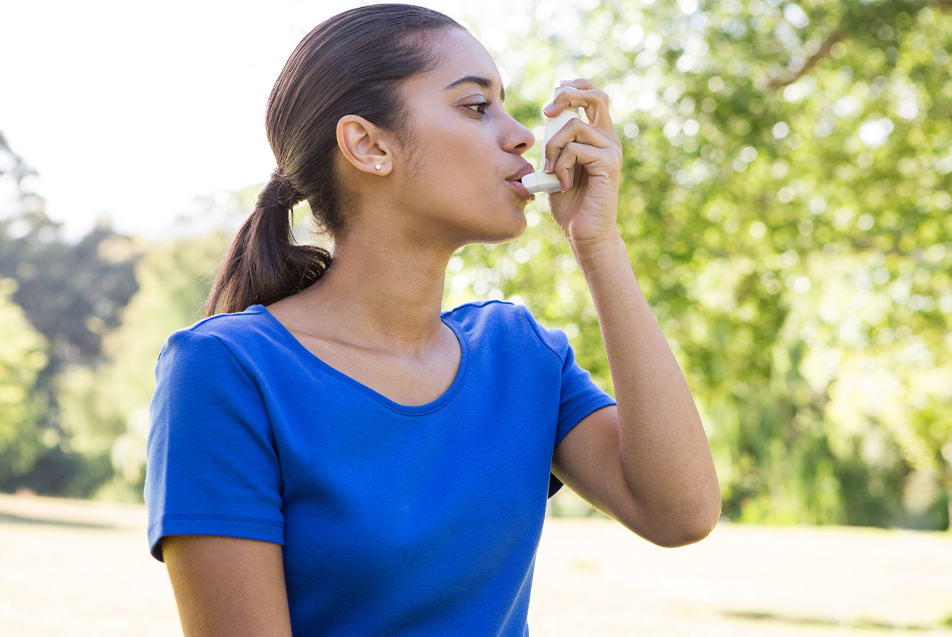
This post was written by Heather Willison, MSN, FNP-C, PPG – Allergy, Asthma and Immunology.
Ah, summer … The time of year when everyone looks forward to getting out of the house and enjoying the sunshine and warmer temperatures. Unfortunately, for those with asthma it may mean different triggers than what they encounter at other times of year. I certainly don’t want concerns about asthma control to keep anyone from enjoying the spoils of the season, so read on to learn about potential triggers and tips for how those with asthma can best navigate the summer months!
Trigger No. 1 – Allergens/weather changes
If you are allergic to pollens or molds, you may find that your asthma tends to act up when pollen and mold counts are elevated. Allergies to these substances can cause the airways to narrow, leading to coughing, wheezing or shortness of breath.
Additionally, summer thunderstorms and high winds can blow allergens around, sometimes traveling hundreds of miles! Knowing which allergens might bother you, and keeping an eye on area pollen counts and weather patterns, can help you prepare.
Trigger No. 2 – Heat and humidity
Heat and humidity tend to go hand in hand, making the air “heavier” and more difficult to breathe. Also, the heat causes your body temperature to rise, and before long you are sweating. When you sweat, you are at risk for becoming dehydrated, which in turn causes you to breathe faster, triggering asthma symptoms. Again, the airways narrow, resulting in coughing, wheezing or shortness of breath.
Staying hydrated is key, and on some days, it just may be too darn hot to spend time outside, unless you are submerged in a cool pool or body of water.
Trigger No. 3 – Chlorine
Speaking of pools, chlorine can also trigger asthma symptoms. The fumes from the chlorine used in pools and hot tubs can be an irritant and may trigger coughing and chest tightness.
Trigger No. 4 – Campfire smoke
Smoke from a campfire is another very common summertime trigger. Sitting upwind from the fire can be helpful on most nights but avoiding smoke on windy days may be more difficult. This may be a good time to watch from afar and ask someone else to toast that marshmallow.
Everyone has unique triggers, and the importance of recognizing these triggers cannot be overstated. Of course, making sure that your asthma is well controlled to begin with is an essential part of asthma management. Quick-relief medications, such as an inhaler, provide a temporary reprieve from asthma symptoms, while long-term controller medications are taken on a regular basis to control airway inflammation or prevent frequent asthma symptoms. The goal is to work with your provider to ensure that your asthma is well-controlled and interferes with your daily life as little as possible.



